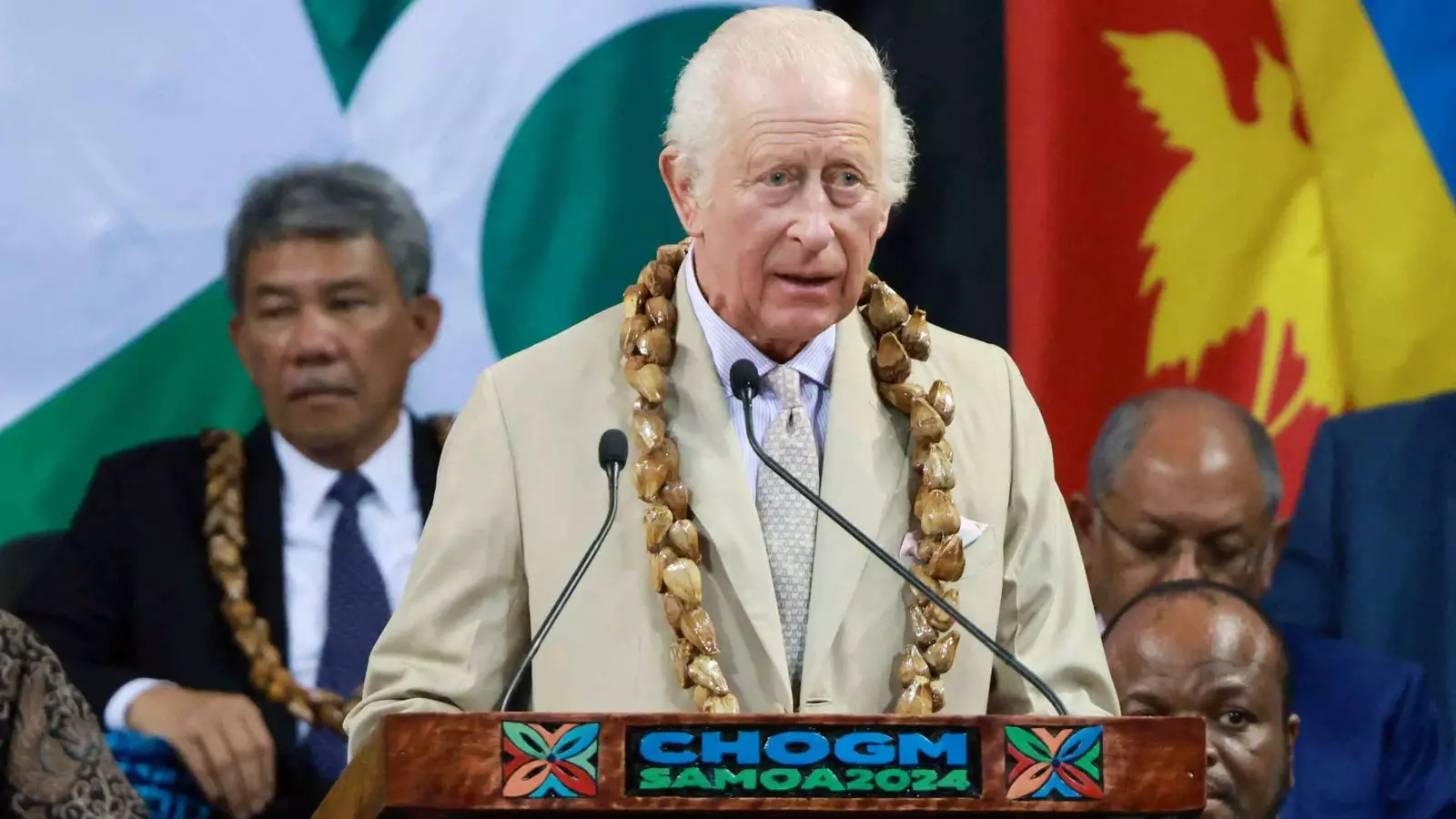The recent speech delivered by the King during his inaugural meeting with Commonwealth leaders has emerged as a focal point for dialogue regarding the past injustices tied to colonialism, particularly the transatlantic slave trade. The choice of Samoa for this significant gathering was symbolic, yet the theme of a “common future” juxtaposed against the growing chasm within the Commonwealth hints at underlying tensions that must be confronted. This gathering underscores a pivotal moment for the Commonwealth—a group historically connected by colonial legacies and shared governance—yet its relevance is increasingly called into question.
The King’s address sought to reconcile historical grievances with a vision for unity moving forward. He acknowledged the pain associated with the Commonwealth’s history, emphasizing the necessity of understanding this past to illuminate pathways for healing and progress. While he spoke to the importance of learning from history, his choice to avoid direct references to “slavery” or “reparations” reflects the broader reluctance among many political leaders to confront uncomfortable truths. This omission could be perceived as an inadequate response, particularly by Caribbean and African nations that feel the weight of their historical wounds and seek acknowledgment and reparations as a matter of justice.
Voices within the Commonwealth are growing increasingly vocal about their demands. Activists like Eric Phillips of Caricom have articulated a perspective that resonates deeply among nations grappling with the implications of their colonial past. Phillips’ assertion that “no reparations, no trade” encapsulates a broader sentiment of a fractured relationship between the Commonwealth nations and their historical injustices. The King finds himself entangled in these complex dynamics, forced to tread the fine line dictated by constitutional monarchy where political impartiality is paramount.
Furthermore, the royal family’s historical ties to the slave trade complicate the King’s position. While he has expressed “personal sorrow” regarding slavery, many critics argue that such sentiments must be paired with actionable commitments to reparative justice. In this context, the King’s hesitance to issue a formal apology is interpreted by many as a missed opportunity to lead with moral clarity in tackling a legacy that continues to disrupt the Commonwealth’s cohesion.
Lastly, the King’s optimistic conclusion stood in stark contrast to the criticism levied against him, framing a narrative of hope amidst turmoil. However, this hope, though commendable, may come off as insufficient to those who seek tangible reparative actions. The future of the Commonwealth hangs in a precarious balance; as divisions grow deeper, stakeholders will demand not only acknowledgments of past wrongs but actively engaged solutions. The King’s speech represented a crucial moment in history, yet many will argue it was an opportunity for profound address that fell short of true reconciliation—a challenge that will demand continued attention and engagement from all parties involved.
In summation, the evolving dialogue surrounding reparations and historical acknowledgment within the Commonwealth is vital to its credibility and future. The King’s address opened the door to necessary conversations, though it also highlighted the complex interplay between tradition, responsibility, and the call for justice that continues to shape the Commonwealth today.

Leave a Reply